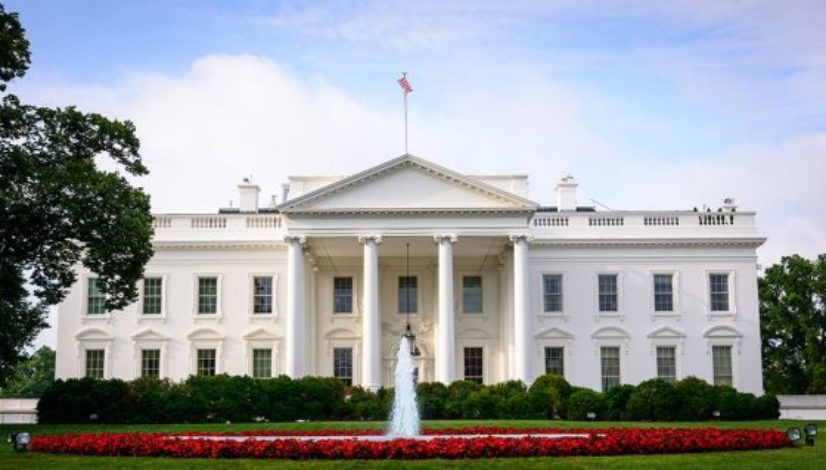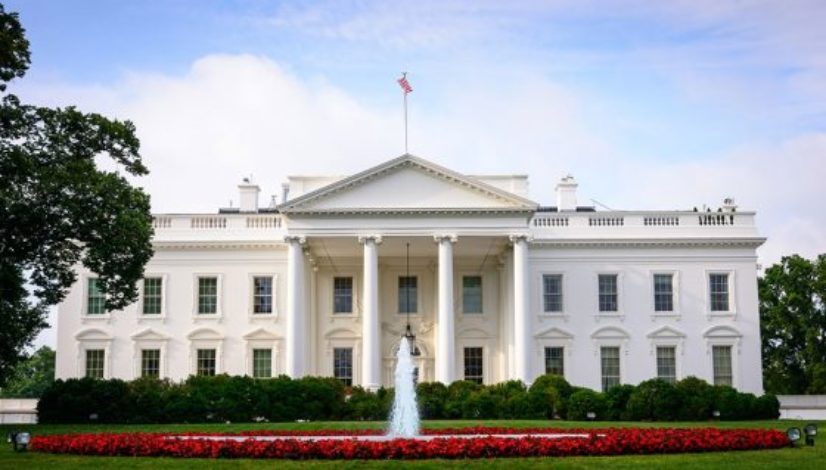Résumé of Trump’s 24-year-old drug policy appointee raising eyebrows

Published: Jan 22, 2018, 1:23 pm • Updated: Jan 22, 2018, 1:23 pm
By Robert O’Harrow Jr., The Washington Post
A former Trump campaign worker appointed at age 23 to a top position in the White House’s drug policy office had been let go from a job at a law firm because he repeatedly missed work, a partner at the firm said.
While in college, late in 2014 or early in 2015, Taylor Weyeneth began working as a legal assistant at the New York firm O’Dwyer & Bernstien. He was “discharged” in August 2015, partner Brian O’Dwyer said in an interview.
“We were very disappointed in what happened,” O’Dwyer said. He said that he hired Weyeneth in part because both men were involved in the same fraternity, and that the firm invested time training him for what was expected to be a longer relationship. Instead, he said, Weyeneth “just didn’t show.”
In a résumé initially submitted to the government, Weyeneth said he worked at the firm until April 2016. When an FBI official called as part of a background check in January 2017, the firm said Weyeneth had left eight months earlier than the résumé indicated, O’Dwyer said.
A spokesman at the Office of National Drug Control Policy – where Weyeneth, 24, is deputy chief of staff – said Weyeneth was unavailable for comment. In replies to The Post, the White House did not address questions about Weyeneth’s work at the law firm.
An administration official previously said that Weyeneth revised his résumé to correct “errors.” In a revised résumé, Weyeneth said he worked at the law firm from November 2014 to August 2015. Details of his time there and the circumstances of his departure have not been previously reported.
RELATED: Meet the 24-year-old Trump campaign worker appointed to help lead the government’s drug policy office
A Jan. 14 Post story detailing Weyeneth’s rapid rise at the drug policy office, or ONDCP, prompted 10 Democratic senators on Wednesday to write President Donald Trump. The lawmakers, including Sens. Maggie Hassan, D-N.H., and Dianne Feinstein, D-Calif., expressed “extreme concern” about Weyeneth’s promotion and unfilled drug policy jobs.
“You have claimed that the opioid epidemic is a top priority for your administration, but the personnel you have staffing these key agencies – and the lack of nominees to head them – is cause for deep concern,” the letter said.
Following his graduation, in May 2016, Weyeneth served as a paid member of Trump’s presidential campaign and then as a volunteer with the transition, arranging housing for senior administration officials. He worked closely with Rick Dearborn, now White House deputy chief of staff.
Weyeneth’s only professional experience after college and before becoming an appointee was working on the Trump campaign and transition.
After being contacted by The Post about Weyeneth’s qualifications and inconsistencies on his résumés, an administration official on Jan. 12 said Weyeneth will return to the position he initially held at the agency, as a White House liaison. The official said that Weyeneth has been primarily performing administrative work, rather than making policy decisions, and that he had “assumed additional duties and an additional title following staff openings.”
Related stories
- Meet the 24-year-old Trump campaign worker appointed to help lead the government’s drug policy office
- Trump’s drug czar nominee withdraws after big pharma flap
- Trump calls drug czar pick “a great guy” but he will “look into” connections to big pharma
- Report: White House plans to slash funding for fed Drug Control Policy office
- Trump’s apparent drug czar pick has strong “no” vote record on marijuana, including CBD oil
On his résumés, Weyeneth revised dates relating to job assignments, and he cut the number of hours he claimed he had volunteered at a monastery in Queens while at St. Johns from 275 to 150. A third résumé, provided by the White House, does not mention volunteer work at the monastery.
Weyeneth left unchanged a portion of his résumés that indicated he had a master’s degree from Fordham University, though a university official told The Post he has not finished his coursework. Weyeneth also left unchanged an assertion that he served for three years as vice president of Kappa Sigma. That claim was contradicted by a fraternity spokesman, Nathan Glanton, who told The Post that Weyeneth was vice president for only 18 months.
Weyeneth was named to the liaison job at ONDCP in March, after a brief stint at the Treasury Department. In the months following, seven of 11 political appointees assigned to the office left, including a person who was serving as general counsel and acting chief of staff. Amid the turnover and vacancies, Weyeneth was promoted to deputy chief of staff in July, according to his LinkedIn page. He also assumed some of the chief of staff’s responsibilities, internal documents show.
An administration official said Friday that Weyeneth remains deputy chief of staff as the search for a replacement continues.
Meet Taylor Weyeneth
(Dalton Bennett/The Washington Post)
Topics: drug policy, opioid epidemic, Trump administration, White House Office of National Drug Control Policy




